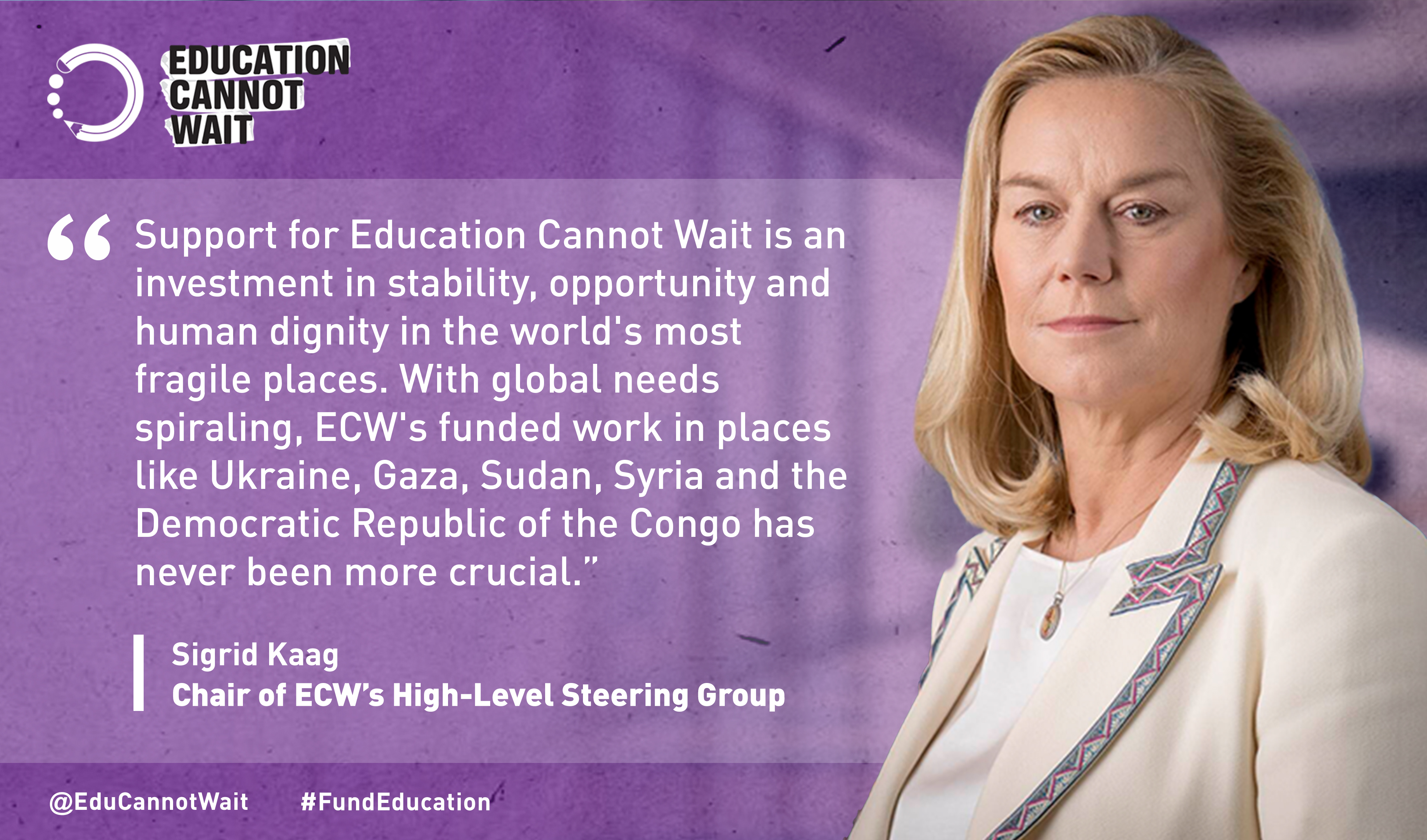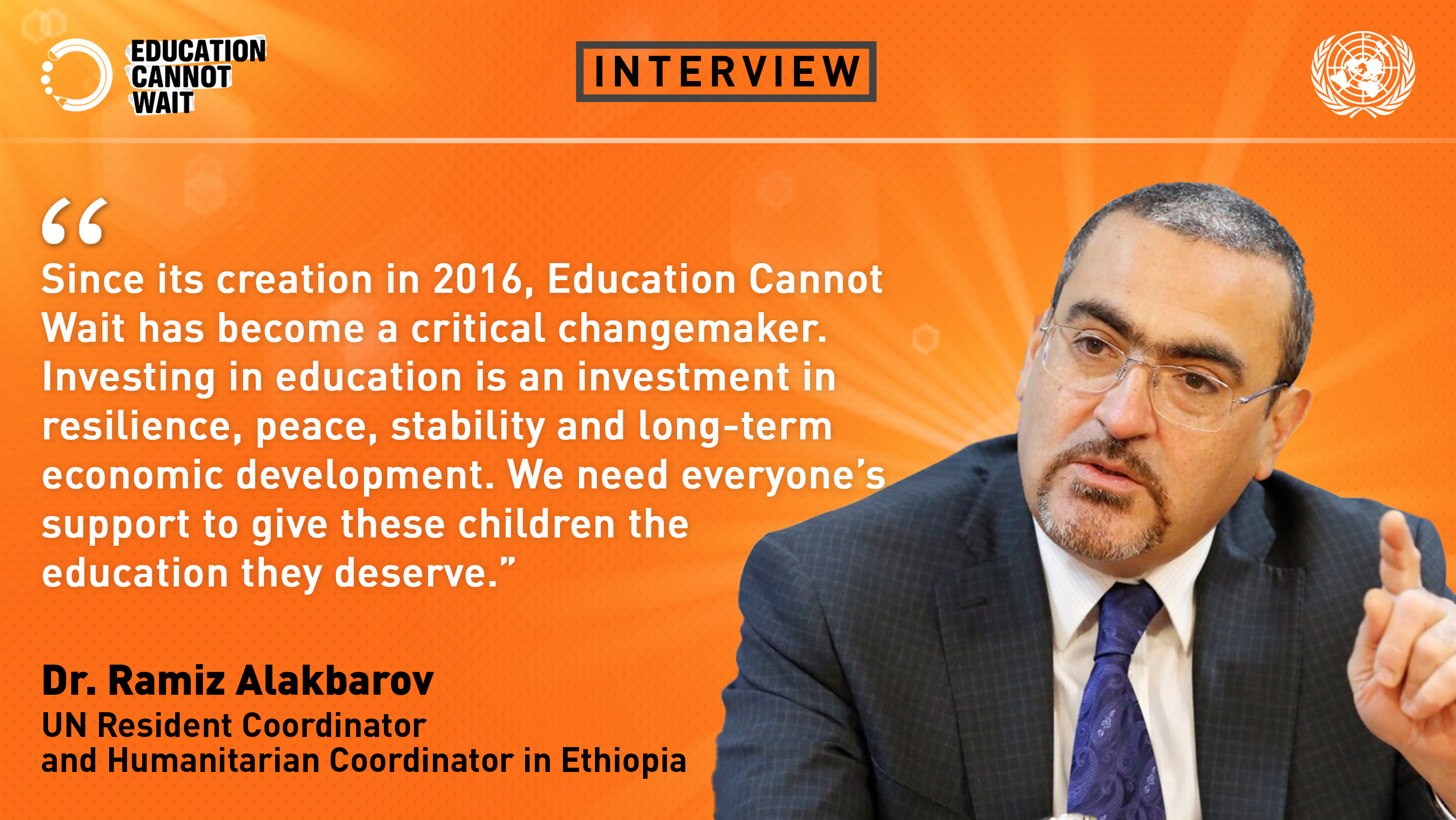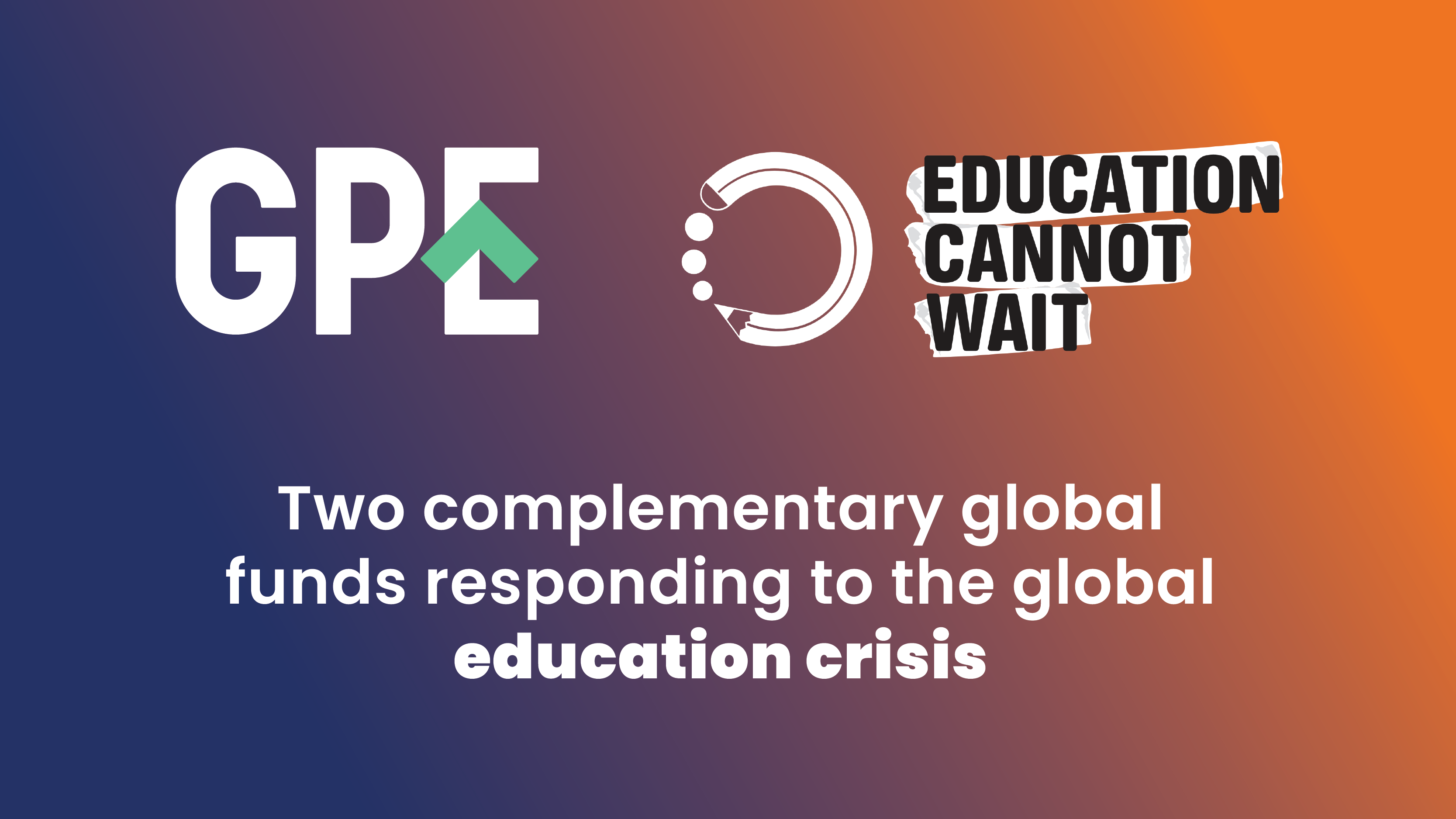ECW Interview With Allegra Baiocchi – a Humanitarian Coordinator Committed to Emergency Education for Children in Cameroon
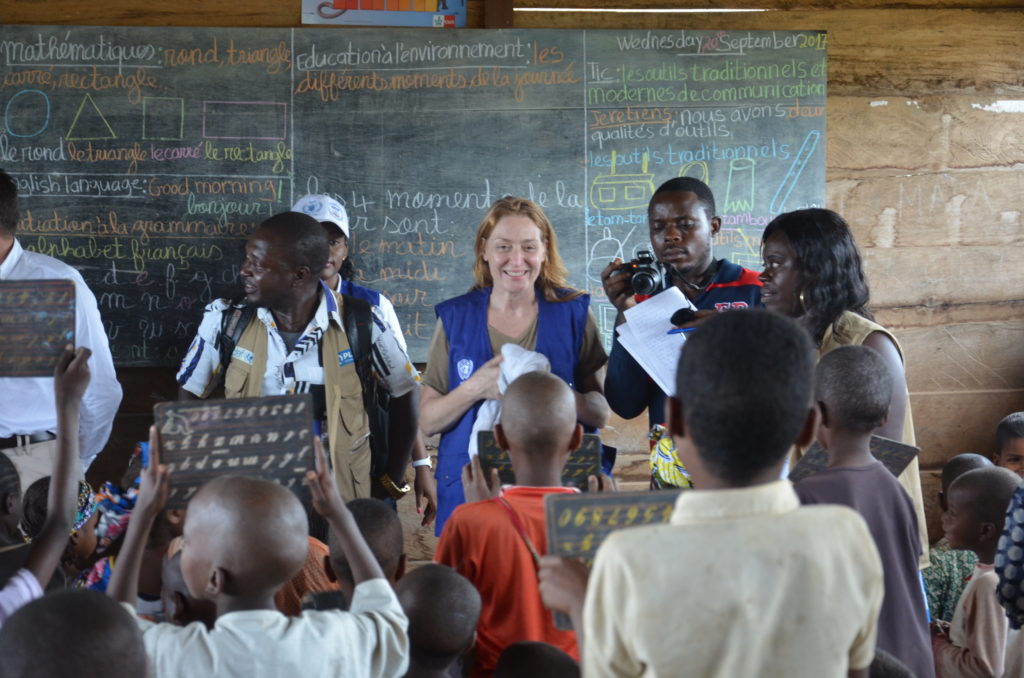
The UN Resident Coordinator and Humanitarian Coordinator for Cameroon shares insights on the current humanitarian situation, the importance of education for children caught in emergencies and the crucial role of ECW’s support to the emergency response in the country.
ECW: As the Resident Coordinator and Humanitarian Coordinator for Cameroon, you have shown an exemplary commitment to education for children and youth. Could you please describe their situation, challenges and opportunities?
Allegra Baiocchi: The situation in the North-West and South-West regions of Cameroon is dire for all school-aged children. Hundreds of thousands of children have been out of school for nearly three full years. More than 80 per cent of schools have been closed and enrolment is reduced by 40-80 per cent in most of the schools that remain operational. This means that around 950,000 children have been forced to leave school. 9 out of 10 children are currently out of school in both regions.
Conflict-affected out-of-school children are exposed to a myriad of severe crisis-related protection risks including sexual exploitation and abuse, gender-based violence, harassment and recruitment by armed forces or armed groups, prostitution, arbitrary arrest, early marriage and pregnancy and child labour.
Children in the North-West and South-West regions have also been exposed to numerous traumatic incidents including witnessing violence from military and/or non-state armed groups, destruction of homes and villages, torture and killings, and mass displacement. After three years of conflict, children are suffering from prolonged toxic stress which has had a severe impact on their well-being and has diminished children’s natural resilience.
Children require urgent support to manage their emotions, understand the normal reactions they are having to an abnormal situation, and improve their psychosocial well-being and resilience through play-based learning and positive social interactions with peers and adult role models. It is imperative to provide children with safe, inclusive and protective learning environments as a first step to reduce exposure to harm and to re-establish a routine and a sense of normalcy.
ECW: How do you see the education sector in relation to other sectors, in achieving the Global Goals, and what importance does it have to you in leading the UN country team and humanitarian community in Cameroon?
Allegra Baiocchi: Education is a fundamental right and is also essential to achieve the 17 Global Goals; nothing should restrict children’s access to quality learning. Education is also a main vehicle for development and is essential to reduce poverty and inequality, to strengthen peace and institutions, to increase economic growth and to improve the overall well-being of populations.
The UN team and the humanitarian community are highly concerned about the current situation. What will be the future for an entire generation of children when so many are out of school? In recent years, Cameroon’s school enrolment rates for both boys and girls has been increasing as a result of development policies. As humanitarians, we must pursue all possible avenues for providing access to quality education, even in circumstances in which education is under attack.
ECW: What is the funding situation for education in the humanitarian appeals and among donors in Cameroon, as well as globally towards Cameroon?
Allegra Baiocchi: The humanitarian response plan for Cameroon requires funding of US$298.9 million, but to date is only 19.7 per cent funded. Education is one of the worst funded sectors; prior to receiving Education Cannot Wait (ECW) funding, only 6 per cent of the financial requirement for education in North-West and South-West regions had been met. With ECW funding, 23 per cent of the funding gap will now be covered. Source : https://fts.unocha.org/appeals/718/summary
ECW: What made you reach out to Education Cannot Wait and what were your expectations?
Allegra Baiocchi: Because Education Cannot Wait is the first global fund dedicated to education in emergencies and protracted crises, it is essential for Cameroon to have the Fund’s support for the education response. This also helps underline education as a priority within the country humanitarian agenda.
Receiving funding and support from ECW is also important for advocacy, to raise the profile of the severity of the education crisis in the North-West and South-West regions. Not only is Cameroon’s humanitarian response the worst funded in Africa, but the education response for the North-West and South-West was almost entirely un-funded prior to receiving ECW support.
With Education Cannot Wait funding, we will be able to ensure 18,386 children have access to quality education; the vast majority of these children were previously out of school. This funding will also highlight the severity of the crisis and the humanitarian commitment to ensuring children are able to fulfil their right to education. It is hoped that this will encourage other international donors to also fund the education response so that we can reach significantly more children with subsequent funding.
ECW: How did you find the ECW response? Did it support you in your responsibilities as the RC/HC? What will the ECW investment do to (strategy and activities) to achieve change?
Allegra Baiocchi: Education Cannot Wait’s funding is aligned with the inter-agency humanitarian appeal and covers 23 per cent of the current funding gap for the North-West/South-West education response. It will support 18,386 children (of whom 9,505 are girls) of pre-primary, primary and secondary school age in accessing quality formal and non-formal education learning opportunities in the two regions.
This crucial grant will be implemented over the next 12 months by Plan International (US$750,000), UNESCO (US$1.1 million), the Danish Refugee Council (US$400,000) and the World Food Programme (US$500,000), in collaboration with the Government of Cameroon and the Cameroon Education Cluster.
Education activities will support the resumption and continuity of learning for crisis-affected children and youth – a majority of whom have been out of school for three years now. There will also be a focus on protection to reduce risks of exploitation, child labour, early marriage, early pregnancy and recruitment into armed forces and armed groups. Psychosocial support, school feeding programmes, vocational training for youth, community reintegration and school readiness will also be supported.
ECW: Any final words from your side?
Allegra Baiocchi: The situation for children in the North-West and South-West regions of Cameroon is alarming. Almost all schools have been closed and nearly all children are currently out of school. In an area of active conflict, this puts children in immediate danger – outside of a protective school environment, children are regularly exposed to traumatic incidents and are at risk of being directly harmed.
Hundreds of thousands of children have now missed all of secondary school or half of primary school. Illiteracy is on the rise. Families, communities and children themselves are losing all hope for the future. It is the responsibility of the humanitarian community to protect children’s right to education and to get these kids back on track with their learning. With Education Cannot Wait funding, this is what we will be doing.
ECW: Thank-you so much for your time and your dedicated efforts in Cameroon, Allegra.
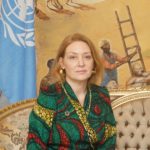
About Ms. Allegra Maria Del Pilar Baiocchi, Resident Coordinator of the United Nations system and Humanitarian Coordinator in Cameroon
Ms. Allegra Baiocchi is the United Nations Resident Coordinator and Humanitarian Coordinator for Cameroon, since July 18, 2017.
Prior to her appointment as the highest ranking United Nations official in Cameroon, Ms. Baiocchi held the position of Regional Representative for West and Central Africa for the Office for the Coordination of Humanitarian Affairs (OCHA), based in Dakar, Senegal.
Ms. Baiocchi has held several positions within the United Nations, she has also worked in NGOs and academia. She has held several international postings, including in Burundi, Cote d’Ivoire, Democratic Republic of Congo, Kenya, Senegal, Sudan and South Sudan and at the UN Secretariat Headquarter in New York.
An Italian and Venezuelan bi-national, Ms. Baiocchi holds a Master’s degree in Political Science and Development Economics from the University of Rome, Italy. She speaks French, Spanish and English.
Follow @AllegraBaiocchi and @EduCannotWait to #Act4Ed in Crisis.

